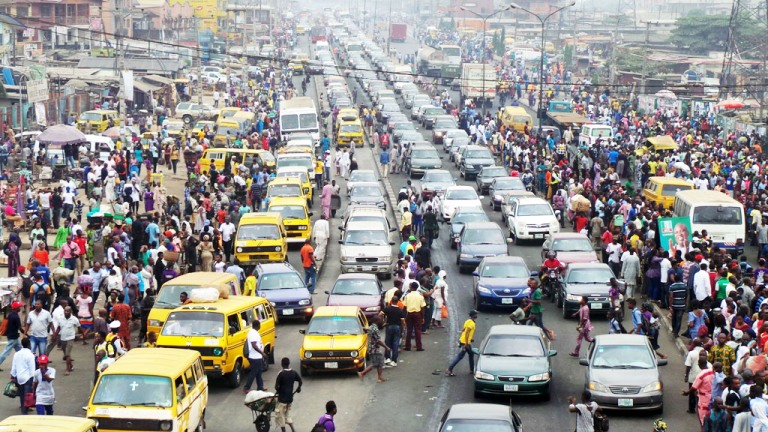Hoodlums take over traffic duty in Lagos
Motor park touts under the aegis of National Union of Road Transport Workers (NURTW) and Road Transport Employers Association of Nigeria (RTEAN) have taken over traffic duty in most parts of Lagos metropolis following the absence of policemen from major roads. The hoodlums were seen around Oshodi, Mile 2, Ketu-Ojota, Abule-Egba and Egbada, skilfully controlling […]

Motor park touts under the aegis of National Union of Road Transport Workers (NURTW) and Road Transport Employers Association of Nigeria (RTEAN) have taken over traffic duty in most parts of Lagos metropolis following the absence of policemen from major roads.
The hoodlums were seen around Oshodi, Mile 2, Ketu-Ojota, Abule-Egba and Egbada, skilfully controlling traffic.
Lagos State Police Public Relations Officer, Muyiwa Adejobi, told Daily Trust that the state Command adopted vehicular convoy patrol as a way to protect the lives of policemen.
He said the state Commissioner of Police had ordered Area Commanders and their respective Divisional Police Officers (DPOs) to also embark on motorized convoy to prevent a breakdown of law and order and to also nip crime in the bud.
At Dubar Road Junction Mile 2, Oshodi, Oyingbo, Agege, Egbeda and Iyana-Ipaja, the touts were seen controlling traffic.
Armed with sticks, they sought the understanding of road users to keep the ever-busy Lagos traffic moving.
Commuters Speak
But commuters on the Mile 2-Badagry expressway said it was a nightmare moving from Mile 2 to Okokomaiko as both ends of the road were completely blocked.
Ikechukwu Chidozie, a trader at the Tradefair Complex, said the touts extort huge sums from commercial bus driver and allow them drive against traffic.
Policemen stayed off the state roads following deadly attacks on officers and stations by urchins under the guise of #EndSARS protest.
Those who also stayed off the roads include officials of the Lagos State Traffic Management Authority (LASTMA), Lagos State Neighborhood Security Corp (LSNSC) and men of the state Taskforce on environmental.
Officials wearing vests marked NURTW Traffic Unit stayed on the road all day, with some of them wielding planks to beat erring motorists into line.
Though normalcy has started to return to most parts of Lagos as residents are beginning to return to work, coupled with the opening of markets, but traffic has been heavy in parts of the state as traders came out in large numbers – characteristic of a normal busy day in Lagos.
Also, from Lagos Island to Mainland, one of our correspondents observed that not a single uniformed security operative was on sight.
Only few officers of the Rapid Response Squad (RRS) were sighted at the Third Mainland Bridge. Even the officers of the state Neighbourhood Safety Corps (LNSC) were not seen.
A resident and businessman in Lagos, Mr. Dayo Ademola, said following his movement from Abule Egba to Ipaja, Egbeda and Oko-Oba, it is clear that normalcy has returned as people were seen doing their businesses.
He however expressed worry that there were no security personnel in all the areas he visited.
Also, Mr. Adedeji Musiliu said that driving from Ikeja where he resides down to Broadstreet on the Island where he works, there was no single security personnel on the road. This he said is worrisome in the case of any break down of law and order.
A Youth group – Oodua Youth Parliament (OYP) has however stressed the need to help the Police force regain its integrity and confidence, even as Nigeria works to check the excesses of the personnel.
Commenting on the impact of the #EndSARS protest on policing in Nigeria, the speaker of the Parliament, Hon. Abdulmajeed Oladimeji Oyeniyi stated that the integrity of the entire system has been brought to question to a point that it may no longer be able to deliver its responsibilities as expected.
According to Oyeniyi, the Special Anti-Robbert Squad (SARS) is simply a tactical unit among many others in the Nigerian Police architecture, stressing that, it would have been logical to treat the excesses of the unit in isolation than generalizing the situation to avoid a general meltdown of the force.
